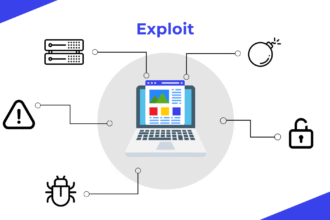Cybersecurity dominates today’s headlines. From ransomware attacks on critical infrastructure to data breaches at major companies, the risks to digital assets are impossible to ignore. With this visibility, many assume that cybersecurity is a mature, well-established field. But this overlooks a key truth: cybersecurity is still an emerging industry, especially for startups, small businesses, and growing companies.
At Black Swamp InfoSec, we help entrepreneurs and business owners understand the evolving cybersecurity landscape, and how to build secure businesses from the ground up.
The Cyber Threat Landscape Is Constantly Changing
For startups and small businesses, cybersecurity risks are not static. Unlike traditional industries, the threat environment in cybersecurity evolves rapidly. New technologies like artificial intelligence, cloud computing, and the Internet of Things introduce fresh vulnerabilities. Attackers continue to innovate, using zero-day exploits, phishing, supply chain attacks, and ransomware in increasingly sophisticated ways.
Startups must approach cybersecurity for small businesses as an ongoing, adaptive strategy, not a one-time fix.
Cybersecurity Regulations Are Still Developing
Many business owners ask: What cybersecurity laws apply to my startup? The answer is rarely simple. Regulatory frameworks such as the General Data Protection Regulation (GDPR) in Europe and the California Consumer Privacy Act (CCPA) in the U.S. reflect how governments are still shaping their approach to digital security and privacy.
Without consistent, global standards, small businesses and startups must navigate a patchwork of cybersecurity compliance requirements that shift based on location, sector, and customer base. Building compliance into your startup can offer a competitive edge, but staying current takes effort.
The Cybersecurity Talent Shortage Continues
There is a well-documented global shortage of qualified cybersecurity professionals. Startups often struggle to hire experienced security talent, a challenge that pushes them to rely on cybersecurity services, automation, or managed security providers. These solutions, while helpful, represent parts of the cybersecurity industry that are still maturing.
For many businesses, outsourcing security is the most practical option, but it also means depending on a market that is evolving alongside the threats it seeks to address.
Technology Adoption Is Outpacing Cybersecurity Practices
Small businesses and startups rapidly adopt cloud platforms, SaaS tools, AI, and remote work technologies. But cybersecurity best practices often lag behind. Many early-stage companies underestimate the risks associated with rapid digital adoption, or they struggle to find affordable, practical security solutions designed for businesses at their scale.
This disconnect between technology use and security readiness is a hallmark of an emerging cybersecurity industry.
What Startups and Founders Need to Know
Recognizing that cybersecurity is still developing allows founders to take smarter, more proactive steps:
Make cybersecurity a competitive advantage. Startups that prioritize security from day one earn customer trust and investor confidence.
Use layered security strategies. No single tool or service provides complete protection. Combine legal protections, security-focused culture, technical controls, and external partnerships.
Stay flexible. As the cybersecurity industry matures, the tools and regulations will change. Founders who stay informed will be positioned to adapt.
Conclusion
While cybersecurity is essential for businesses of all sizes, it remains a developing field. The tools, laws, and expertise needed to protect companies are still evolving. Cybersecurity for startups requires thoughtful, strategic action to stay ahead of risks.
At Black Swamp InfoSec, we help SMBs cut through the noise and build real-world, plainspoken cyber defenses that work. If you’re ready to protect what you’ve built, let’s talk.









